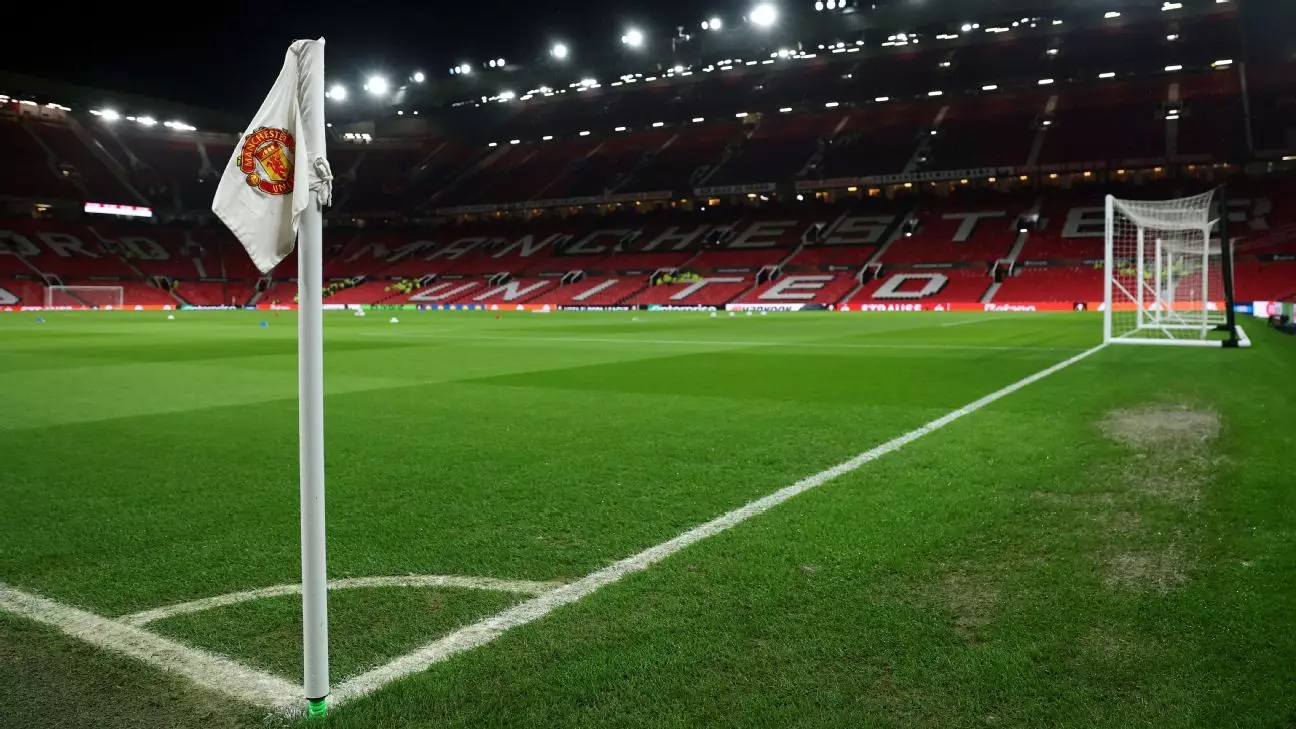In a stark revelation that underscores the challenges facing one of football’s most storied clubs, Manchester United has publicly acknowledged the precarious state of its finances. In a recent communication to fan groups, the club disclosed that it is “in danger” of violating the Premier League’s Profit and Sustainability Rules (PSR). This alarming statement follows a disconcerting trend of financial losses, totaling £312.9 million over the past three years, prompting urgent concerns regarding the club’s future stability.
The severity of Manchester United’s fiscal situation is not just a numerical anomaly; it reflects deeper issues that threaten the club’s very existence in the competitive world of football. With expectations that the financial struggles could lead to breaches of the Financial Fair Play (FFP) regulations, the club is faced with the grim reality that it must either find ways to rectify its financial imbalance or risk severe penalties, including possible points deductions or hefty fines that could hinder their performances on the field.
This financial strain comes at a particularly critical time, as head coach Ruben Amorim finds himself unable to make essential reinforcements in the January transfer window. The club’s unwillingness to invest in player acquisitions speaks volumes about its economic woes, signaling to both supporters and competitors that Manchester United may not be in a position to bolster its squad amid its ongoing financial challenges.
A letter from the club explicitly stated the intention to achieve a “cash positive position” as soon as possible, which will undoubtedly entail making difficult decisions regarding player personnel. In this environment, it is speculated that any senior player could be on the trading block, including promising talents like Alejandro Garnacho. While the club’s long-term vision might not align with selling such assets, fiscal pressures may compel them to negotiate with interested parties, putting both players and fans on edge.
Adding insult to injury, Manchester United has faced significant backlash from fans over recently raised ticket prices, with the lowest tier now costing £66—an increase from the previous £40. This increment has sparked outrage among supporters who feel that amidst financial mismanagement, they should not be shouldering the burden for the club’s shortfalls.
In light of this backlash, the club has promised to evaluate its ticket pricing strategy while maintaining that it does not expect fans to bear the brunt of the financial crisis alone. This discontent signals a growing divide between the club’s management and its loyal fan base, making it crucial for the administration to address not just the financial issues but also the relationship with supporters who have been integral to the club’s identity.
Compounding these challenges is the leadership turmoil at Manchester United. The recent dismissal of manager Erik ten Hag just months after an extension of his contract exemplifies the chaotic environment within the club. Director Dan Ashworth’s mutually agreed departure shortly thereafter further emphasizes the instability across the management hierarchy.
Given the club’s dismal performances, including a noteworthy drop to 13th place in the Premier League, the leadership transitions are strikingly ill-timed. With Amorim’s poignant remarks labeling the current season as “the worst, maybe, in the history of Manchester United,” the urgency for effective and cohesive management has never been stronger.
Each setback compounds challenges faced on multiple fronts: from financial sustainability to performance on the pitch, as well as fostering a nurturing relationship with the passionate fan base.
As Manchester United grapples with a multifaceted crisis, the path forward will determine whether the club can stabilize its finances, restore competitive integrity, and regain the trust of its supporters. The management’s capacity to make prudent financial decisions, evaluate the talent roster judiciously, and adopt a strategic approach to ticket pricing will be critical in steering the club back to its former glory.
Ultimately, the storied legacy of Manchester United rests not only on its historical triumphs but also on its ability to navigate the treacherous waters of modern football economics. The fans, players, and stakeholders are watching closely, hoping that this iconic institution can rise from the ashes of its current turmoil and reclaim its rightful place at the pinnacle of English football.

